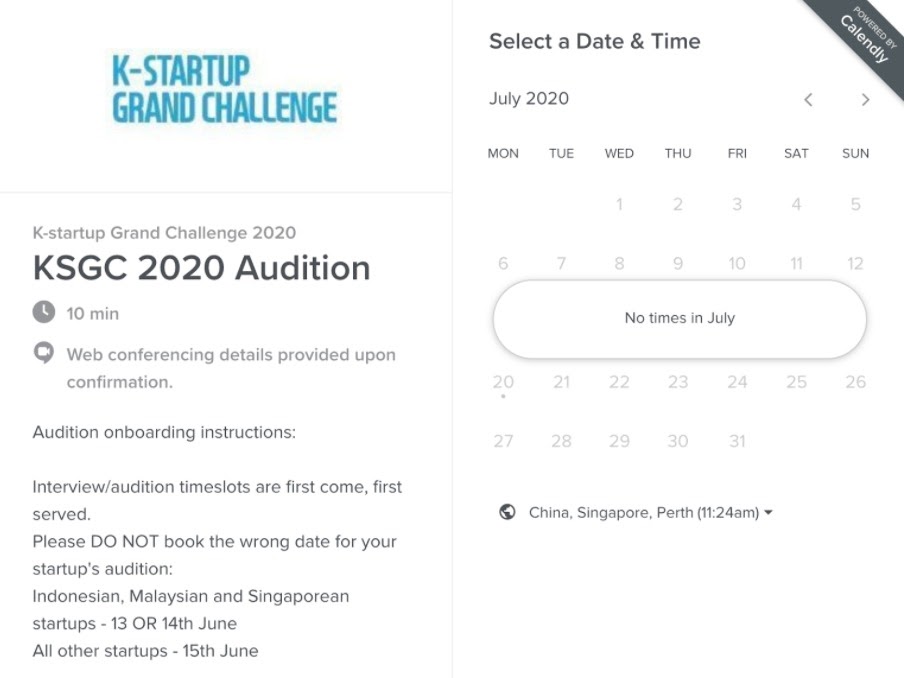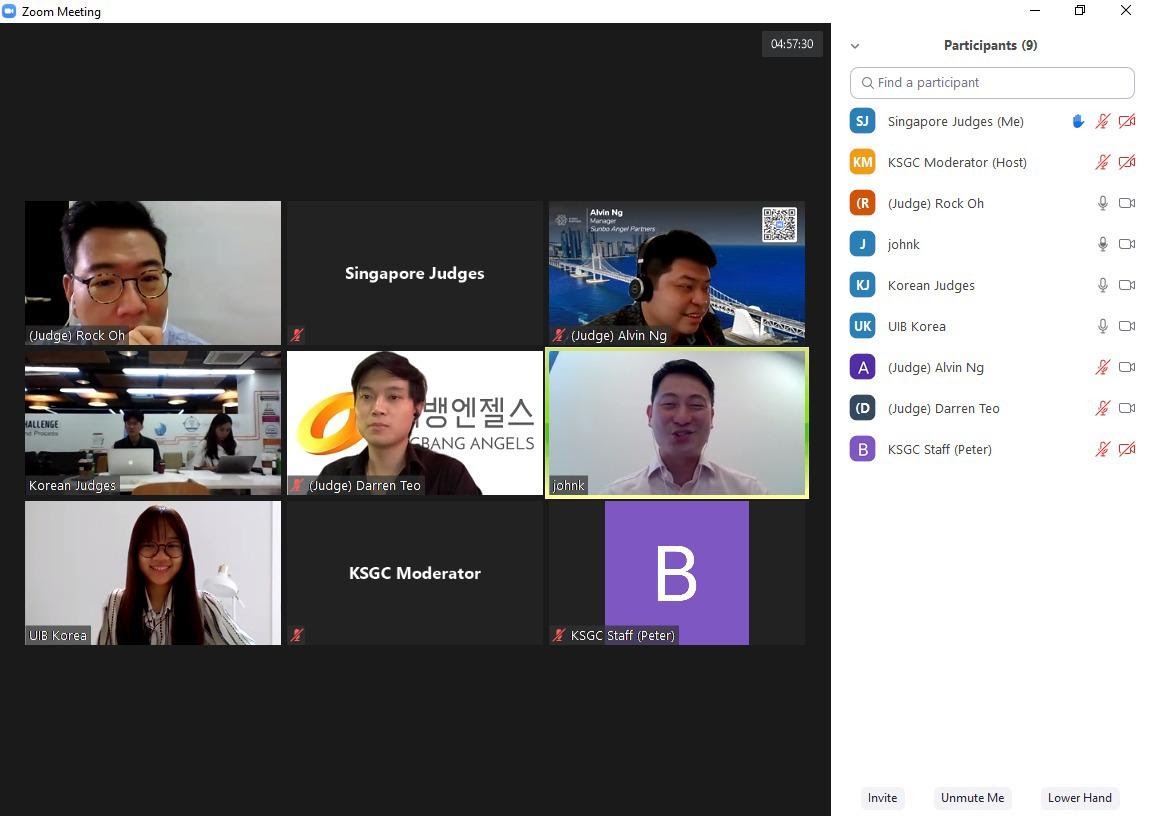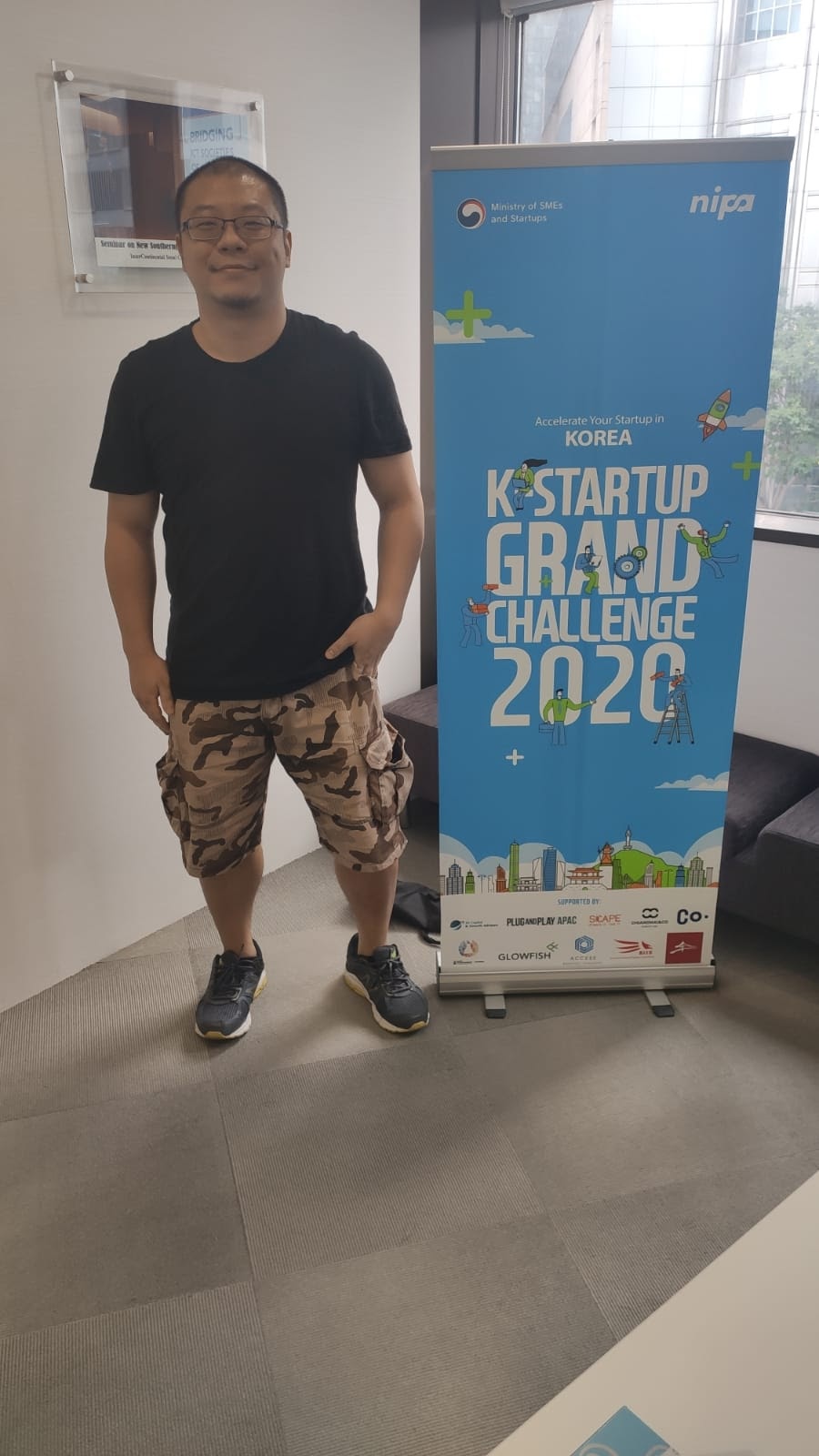Getting the first impressions for your startup's 10-minute audition right? No pressure.
2020 will be a year to remember. The pandemic has forced changes in the way we live and work. For the last few months, we had the privilege to be the PR and marketing partners for the K-Startup Grand Challenge (KSGC) 2020, and it was evident through the campaign that every step we took had to be considered through a COVID-19 lens. One of the biggest adjustments that we had was making this year’s audition process as online as possible.
We picked up a few things along the way while cutting through the logistical snags and technical hoops of getting everyone on the same page for this undertaking.
With all hands on deck, and after 3 days moderating through more than 70 pitches later, we came out of it with a better perspective of the situation for both the judges, as well as the participants.
Here is my account of the things needed to make the show run well, and the things that startups looking to successfully pitch and audition for accelerator/incubation programs should be aware of, while keeping everyone’s time and sanity in check.
Read the instructions, read them again, and then ask if you’re not sure
Collating the information, giving clear instructions, and making sure that this reaches the startups with enough time for a response is the duty of the organisers.
As a startup, please, please… read.
We had more than a few replies asking us the very same questions that were written in the emails. Don’t wait till the deadlines to do your submissions, take note of any time zone differences, and mark it down on your calendar in case you forget, because you will.

Read the instructions, and don’t leave things to the last minute
Why this program in particular, and why you should be considered
There are many accelerators and incubators out there that have their targets and leanings. In what way does your startup fit into the picture? In the case of KSGC, some startups had a strong case for them wanting to expand to and base themselves out of Korea. They did their subsequent research and projections that made them a better fit for the program.
For good programs expect a degree of competition, and if there are other startups that offer similar solutions, the one that puts thought and consideration to demonstrate their suitability will have the edge.
Submit the minimum at your own risk
It never hurts to have a failsafe. We had Zoom and Google Hangouts on standby for the auditions, and in case of technical difficulties we wanted to make sure that everyone had a chance. There was a Google Drive for the presentation decks that the judges could refer to in the case of a no show, and we gave our startups the option to upload a 5 minute video of their pitch via Screencastify for added insurance.
Fortunately, for the most part, the auditions went smoothly for most startups, but there were the unfortunate few who faced some technical issues. Their connections were wonky, their mics weren’t working, screen sharing showed the wrong window, these issues resulted in shortened or forfeited time slots. While an inconvenience and mild embarrassment at the best of times, missing your time slot for an audition or pitch could mean losing your chance to qualify for a program. Those who had submitted their decks and videos stood a fighting chance, while those that didn’t were out before they could even start.
Familiarise yourself with the tools and processes
What do the buttons do? How do I unmute myself? These aren’t questions and concerns that you should be thinking about when it's time to pitch. This should be a no-brainer, but I was surprised at how many startups came in who were lost on Zoom, and more so that some hadn’t used it before prior to the audition.
Heading into the new normal, there will be a greater reliance on different digital tools, and a base expectation of proficiency in using them, auditions or not.
Don’t be unfamiliar, be prepared.
Practice and rehearse, you always have less time than you think you do
Know your time limit.
Depending on your pitch/audition, there will be time allotted for the presentation, and for Q&A. There were some startups with great ideas, products, and services that were not even halfway through their presentation when their time ran out.
Time your presentation for it to end with a 30 second buffer to give you enough time for pauses, and to show any videos if you have them. Though you might have something special to share, keep in mind that the judges are going through startup after startup or hours on end. A presentation that is structured, to the point, and isn’t rushed stands out. Also, you end up with more time for Q&A.

Practice helps keep your delivery smooth, especially when all eyes are on you
Don’t talk over or interrupt the judges
Maybe we could blame it on nerves, or unbridled enthusiasm, but no matter how you paint it, it's not a good idea to talk over or interrupt the judges. There were startups who probably thought that they were showing initiative and saving time by cutting off the judges mid-sentence, and boy, were they far off the mark.
Never, ever do that. I’ve seen judges lose interest and decide not to ask those startups any questions just because, prematurely ending the Q&A session, and effectively striking them off the list.
Lead with an overview for your pitch, end with the details in your Q&A
Time is of the essence, so the pitch should give an overview of what your startup does, cover the challenges it aims to solve, projections of the market, some numbers and plans for future growth, your team, and what makes your approach one that people should take note of. Now, If we put that into the context of 5 - 7 minutes, it does feel very short, and that you won’t be able to cover them in time. But it is possible.
Go with broad strokes that give the judges space to ask for more details. That being said, you should have a list of frequently asked questions with short and clear answers to. We have had cases where startups came prepared to pitch, but weren’t as tight when it came to the Q&A, missing out on opportunities to give a clearer picture of the business to the panel of judges.
We hope you have found this helpful, and may your next audition be pleasant, timely, and crazy in a good way.

Done and dusted, till the next one!
